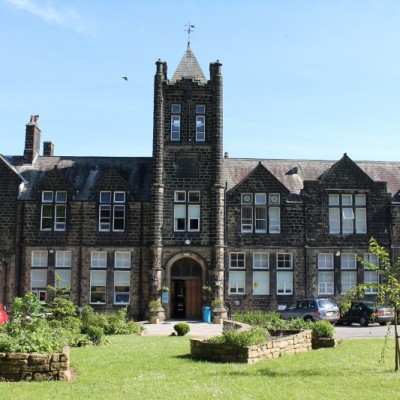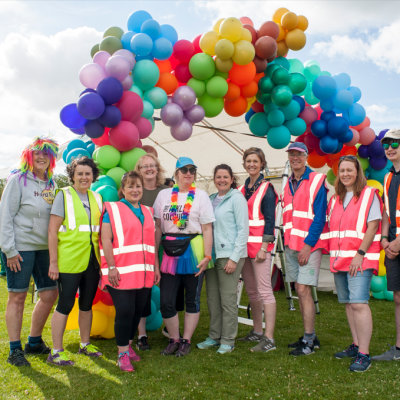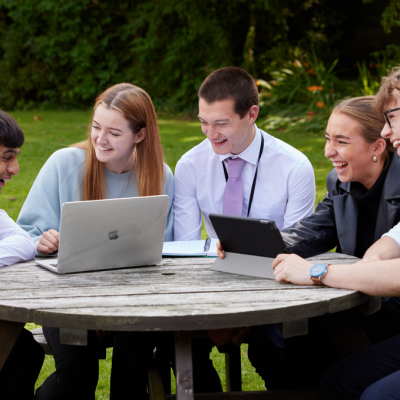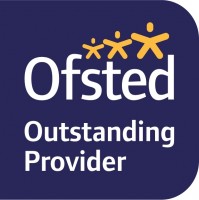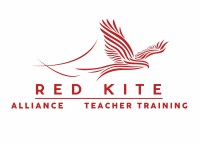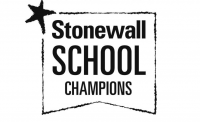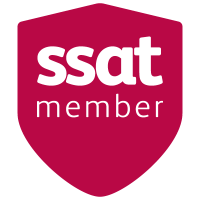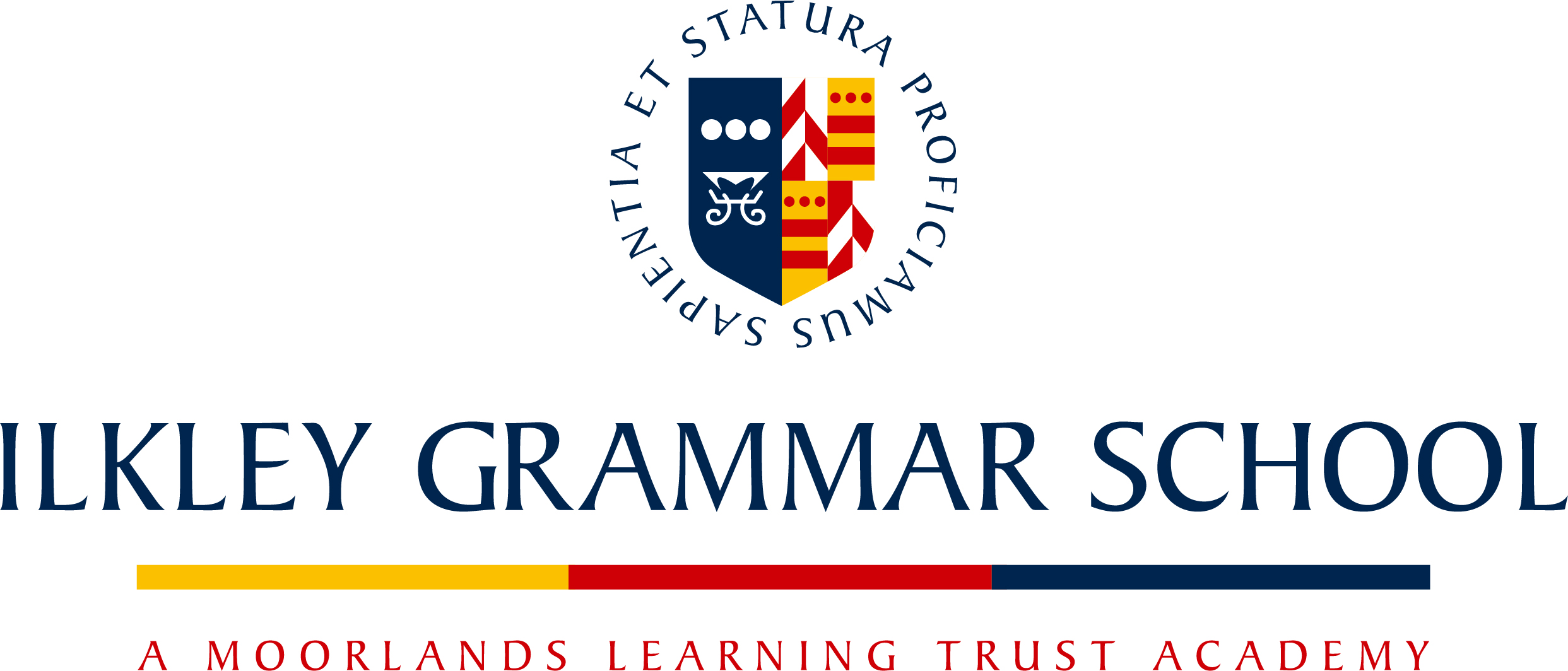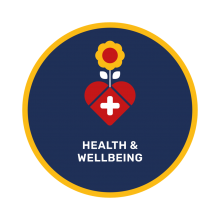 MENTAL HEALTH & WELLBEING
MENTAL HEALTH & WELLBEING
Mental Health First Aiders
Ilkley Grammar School has invested in training for 1:2 members of staff to received Mental Health First Aid Youth Qualification from Mental Health England. This course is fully accredited and trains staff to support young people between the ages of 8-18.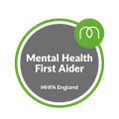
Mental Health First Aid (MHFA) is an internationally recognised training course, designed to teach people how to spot the signs and symptoms of mental ill health and provide help on a first aid basis.
Staff are trained to:
- Have an in depth understanding of young people’s mental health and factors that affect wellbeing.
- Practical skills to spot the triggers and signs of mental health issues.
- Confidence to reassure and support a young person in distress.
- Enhanced interpersonal skills such as non-judgemental listening.
- Knowledge to help a young person recover their health by guiding them to further support – whether that’s through self-help sites, their place of learning, the NHS, or a mix – engaging with parents, carers, and external agencies where appropriate.
- Ability to support a young person with a long-term mental health issue or disability to thrive
- Tools to look after their own mental wellbeing.
Teachers are taught about how to support students with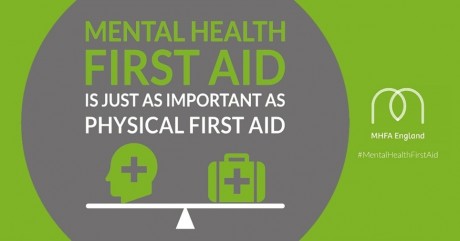 :
:
- Depression and anxiety
- Suicide and psychosis.
- Self-harm and eating disorders.
Students can identify Mental Health First Aiders from signs on their doors and signatures at the bottom of their email.
Students are regularly reminded to approach a Mental Health First Aider as one of the first ports of call when the need support and advice. Staff are trained to be able to offer better strategies to help students manage their wellbeing and become more resilient.
The Wellbeing Team
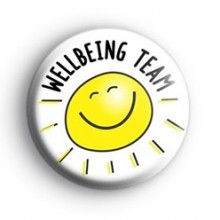 When students need more specialist support with their health and wellbeing they can approach their pastoral team and request a wellbeing referral.
When students need more specialist support with their health and wellbeing they can approach their pastoral team and request a wellbeing referral.
It might also be that in conversations with students, pastoral teams will feel that wellbeing referral would be beneficial for a student.
The team will then liaise with both the student and parents to have a referral submitted to the Wellbeing Team.
The team is made up of the Designated Safeguarding Lead, Student Mental Health Lead and both of our School Counsellors.
The team meet each week to review referrals and determine next steps for support. The team which is made up of expertise from across IGS support systems then works out what support which would be most beneficial to each student on a case by case basis. Support is determined based on each young persons wellbeing journey
Social Prescribing
The Social Prescribing team work as part of the NHS and the link workers operate out of local GP surgeries through the week and have designated days working in Ilkley Grammar School.
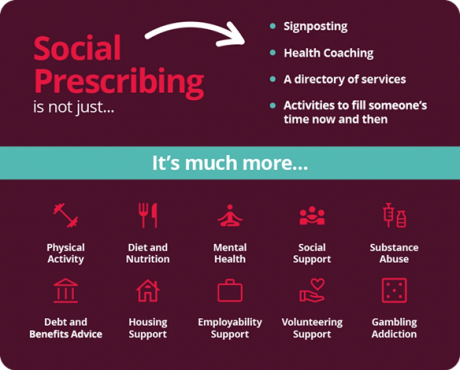 Social prescribing link workers connect people to community-based support, including activities and services that meet practical, social, and emotional needs that affect their health and wellbeing. This includes connecting people to statutory services for example housing, financial and welfare advice.
Social prescribing link workers connect people to community-based support, including activities and services that meet practical, social, and emotional needs that affect their health and wellbeing. This includes connecting people to statutory services for example housing, financial and welfare advice.
Social prescribing works particularly well for people with low level mental health needs, who feel lonely or isolated, with long term conditions and complex social needs.
Social prescribing link workers work collaboratively across the health and care system, targeting populations with greatest need and risk of health inequalities. They collaborate with partners to identify gaps in provision and support community offers to be accessible and sustainable.
The Social Prescriber can work with students 1:1 and determine strategies of support which individual can work on to become more resilient with their wellbeing. Once the strategies are devised the Social Prescriber then checks in with the student every few weeks to see how things are going and adjust plans if needed.
The Social Prescriber also delivers group sessions once a month to students to help foster a better understanding of:
- Anxiety
- Friendship Issues
- Positive Masculinity
These sessions then promote good practices and strategies to support following their completion.
The Wellbeing team work closely with the provider to ensure that students who would benefit from the support are assigned following the receival of a wellbeing referral.
Counselling in IGS
What is counselling?
Counselling at IGS involves the school Counsellor seeing a student (their client) in a private and confidential setting to explore issues of life the client is experiencing. These may be caused by a crisis or a long-term situation, and what is spoken about will depend on the individual, but common themes are relationships, stress, change, loss and distressing, traumatic experiences. The Counsellor helps the client explore their situation to gain awareness and understanding. Choices are discussed and explored, and support is offered. The Counsellor will make use of a variety of counselling models as she feels appropriate for the individual client.
Referrals to the School Counsellor and accessing the service.
- Referrals will be made for Wellbeing support by Heads of Year and Pastoral Teams
- Referrals will then be discussed by the IGS wellbeing teams which consists of the DSL, Wellbeing Lead and School Counsellors
- The Wellbeing team will then determine the best support for each referral and whether counselling would be appropriate for the client and if so an offer of counselling will be made to the student.
Counselling can only take place and be successful if the student concerned is a willing participant in the process. He/ She has the final say. Counselling cannot be made compulsory.
The school Counsellors, operate from designated Counselling Rooms. If you would like to communicate about anything counselling related, please email the wellbeing team on wellbeing@igs.mlt.co.uk. Replies might take up to 48 hours.
Appointments
Appointments are held in designated counselling rooms during the school day during lesson time. Students will be informed of their appointment time and location with their teacher being informed beforehand. Some students may just need one appointment, others more. A common pattern is a course of three weekly sessions, followed by a review meeting. The decision to continue or conclude is taken by the Counsellor and client together. If a client’s needs are such that long-term counselling is required, the school reserves the right to encourage parents to refer their child on for alternative therapy, depending on the availability of the Counsellor.
The Wellbeing team aims to respond to a referral as quickly as possible – emergencies can usually be seen within the day. If the demand for counselling exceeds the time available for sessions, school will prioritise according to need (using YP Core assessment) and may put a student on a waiting list until the Counsellors are able to see them. Students may receive support in the meantime from other colleagues, Mental Health First Aiders, Pastoral Team, or from a trained sixth form student. In some circumstances it may be necessary for the Counsellor to refer clients on to other counsellors or services such as CAMHS. This is always done with the consent of a student’s parents.
Parental awareness that their child is accessing counselling is encouraged, but if the students is in Post 16 and does not wish their parents to know that they are seeing the Counsellor, they are entitled to access counselling sessions without their parents’ knowledge.
Contracting
The Counsellor will clearly explain during the first session the principles upon which the counselling will take place and allow the client to decide whether they wish to continue with further sessions. At the second session, both the client and the Counsellor sign a contract agreeing these principles. It will be made clear to the client that anything they share with the Counsellor will be confidential unless they are in danger or at risk as per Ilkley Grammar’s safeguarding systems.
Confidentiality
At the first session, the Counsellor will explain to the client that there is a high level of confidentiality in the relationship but that there are exceptions where there is perceived to be a safeguarding risk. These would include suicidal intent, the risk of harm to oneself or to others and any disclosure of abuse. If confidentiality needs to be broken, an attempt would always be made to discuss this with the client first.
The school accepts that the Counsellor will not share information about what takes place in sessions. They will, however, immediately inform a Designated Safeguarding Lead if they have any safeguarding concerns. This is made clear to the student from the start.
Many students agree at the start of their counselling that they are willing for certain people to be aware that they are having counselling e.g. parents, form teachers, or other members of the Pastoral Team. They are asked to consent to this in writing.
The Counsellor regularly liaises with the Wellbeing team and the Pastoral Team. The Counsellor will only share information about a student client at this meeting with his/her consent.
Communicating with clients
The Counsellor seeks to be as discreet as possible in all communications and will encourage other staff to also be discreet. School email addresses are used rather than personal ones. The Counsellor is normally free during morning break for students to call in to see her. During holidays and at weekends, students are signposted to access other sources of help & support such as Child Line, First Response, or the Samaritans.
Non-attendance
Clients can choose at any time to discontinue their counselling sessions. If they miss a session this will be followed up with an email from the Counsellor offering a further appointment. If two appointments are missed without a communicated reason, the Counsellor will make contact to find out whether they wish to see her again. If the client has decided not to see her again, or does not reply, the Counsellor will terminate the contract and inform the referring member of staff that this has happened. If the Counsellor has concerns about a student’s wellbeing a member of the pastoral team might be asked to check up on them.
Supervision and Professional Ethics
The Counsellor is a registered member of the British Association of Counsellors and Psychotherapists and is bound by the BACP Code of Ethics. In accordance with BACP Professional Standards Code of Practice requirements, they receive appropriate clinical supervision on a monthly basis. This ensures safe practice, by allowing space for reflection on the Counsellor’s work through an external independent supervisor. The supervisor is bound by the same rules as the Counsellor in terms of client confidentiality.
Evaluation
An evaluation form is given to a client at the end of a course of sessions. A summary of the Counsellor is given in a report to the Designated Safeguarding Lead and included in an annual safeguarding report to the Governors. This contains details of the number of students seen during the school year, a breakdown of gender and year groups, a summary of the main types of presenting issues, the number of sessions delivered in the year and some anonymised feedback/ comments from clients or parents. The Counsellor meets with the Designated Safeguarding Lead regularly to review their role and practice.
Record keeping
In accordance with the School’s Data Retention Policy, counselling records are stored securely by the Counsellor, with confidential information coded and anonymised. Past records (for clients no longer seeing the Counsellor) are archived annually at the end of the school year and kept in accordance with the School’s Public Liability Insurance & GDPR guidelines. Records are then securely disposed of, unopened. Email addresses for former clients are deleted at the end of each school year.
Relevant Department for Education guidance and statutory advice
- Counselling in schools: a blueprint for the future – Departmental advice for school leaders and counsellors (February 2016)
- Mental Health and Behaviour in Schools – Departmental advice for school staff (March 2015)
- Keeping Children Safe in Education – Statutory guidance for schools and colleges (September 2023)
